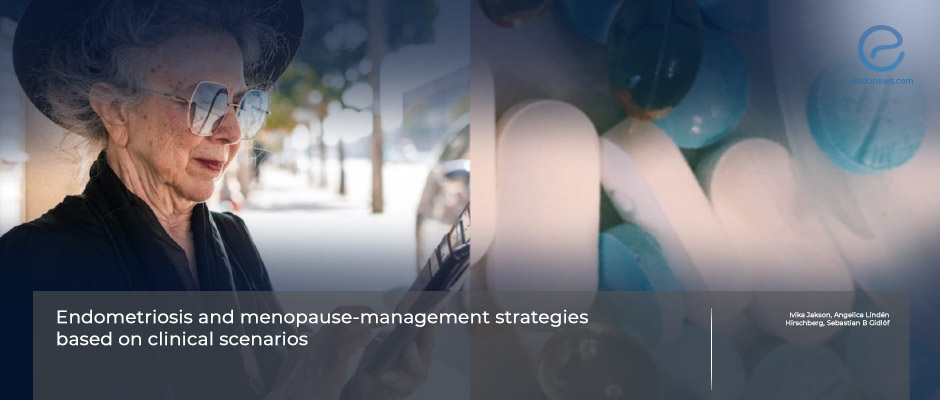Menopause-management strategies for women with endometriosis.
Jul 6, 2023
Hormonal replacement treatments and other options are to be considered for endometriotic women during the perimenopausal period.
Key Points
Importance:
- Hormone replacement therapy in the menopausal period of endometriotic women requires careful assessment due to the estrogen-dependent nature of the disease.
Highlights:
- Menopausal hormonal therapy after menopause in women with a history of endometriosis should be carefully managed regarding its risks and benefits.
What's done here:
- A Swedish research team created five possible clinical scenarios to share their experiences with endometriosis management during menopause.
- The primary purpose was to discuss the potential risks of giving hormone replacement therapy to patients with endometriosis during the peri and postmenopausal periods.
Outlines:
- As with all other patient groups, the potential risks and benefits of menopausal hormone therapy should be discussed so that the patient for an informed decision.
- A hysterectomized woman with a history of endometriosis requiring menopausal hormonal therapy should target the lowest estrogen dose and the shortest therapy.
- Surgical premature ovarian insufficiency and menopause before 40 years of age would create a need for menopausal hormones due to the risk of early osteoporosis. Current literature recommends menopausal hormonal therapy until the age of natural menopause.
- To reduce the vasomotor symptoms while the endometriotic woman is still menstruating and without thrombotic contraindications can be succeeded with progestins.
- In addition to hormonal therapy, there are nonhormonal alternatives such as cognitive behavioral therapy, hypnotherapy, selected antidepressants, and gabapentin.
- When postmenopausal recurrence of endometriosis occurs, malignant transformation should be suspected which necessitates thorough evaluation.
- In managing postmenopausal women receiving menopausal hormonal therapy, it is necessary to monitor the pelvic mass, free fluid collection, etc., with periodic ultrasonographic examinations.
Lay Summary
Menopausal hormonal therapy is the most effective treatment for menopausal symptoms, such as hot flushes, sweating, sleep disturbances, mood changes, and joint pain. Approximately 75% of all women experienced some degree of these symptoms, while 2-4% were diagnosed with endometriosis. Menopausal hormonal therapy consists of estrogen therapy alone or combined with progestins, while a synthetic preparation of tibolone may be another option.
Jackson et al., from the Department of Gynecology and Reproductive Medicine of Karolinska University Hospital, Sweden, build five hypothetical scenarios to discuss the challenges faced by clinicians. The article also informs the details of menopausal hormonal therapy during the perimenopausal period. This interesting paper was recently published in Acta Obstetricia Gynecologica Scandinavica, and the discussion consisted of specific guidelines, case reports, and retrospective studies.
The risk for recurrence of the symptoms and a theoretical risk for malignant transformation of endometriotic lesions requires caution when prescribing menopausal hormone replacement treatment to patients with endometriosis. The rate of postmenopausal recurrence of endometriosis with a clinical moderate to severe disease is approximately 4% and is affected by the use of menopausal hormonal therapy.
Current literature does not recommend against the use of menopausal hormonal therapy for endometriotic women, but it would be wise to apply individualized regimes that assess potential risks and benefits.
One of the two basic conclusions is the vitality of individualized counseling based on the literature and clinical experiences. Secondly, the necessity of further research to understand better what kind of hormonal therapies should be selected for postmenopausal women with a previous diagnosis of endometriosis was voiced.
Research Source: https://pubmed.ncbi.nlm.nih.gov/37186303/
hormonal replacement therapy menopausal symptoms recurrence of endometriosis malignant transformation perimenopause post menopause bilateral salpingo-oophorectomy endometriosis.

